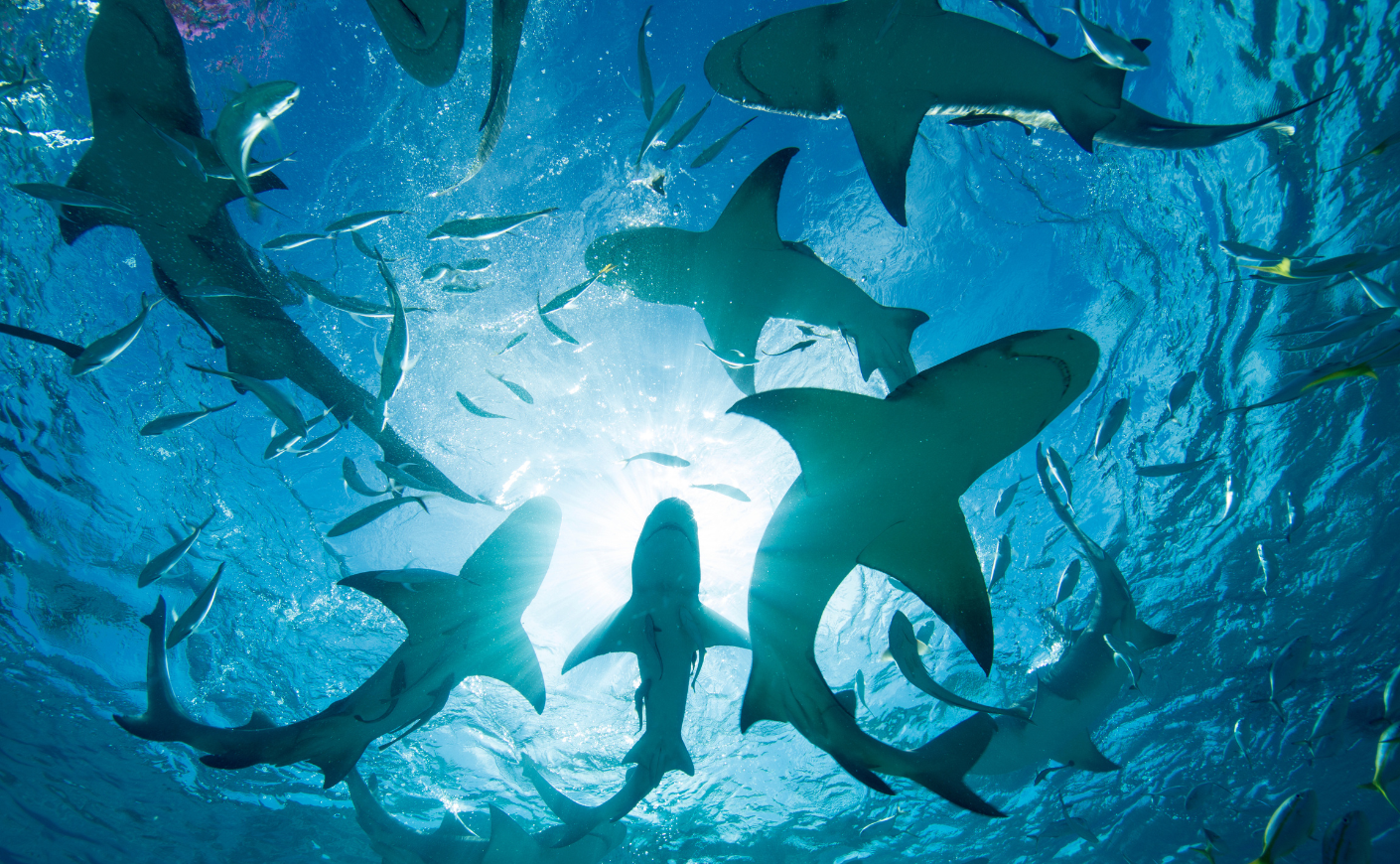Humans really are everywhere these days. From the furthest reaches of the heavens to the depths of the ocean, we’ve never been more eager to conquer uncharted territories.
Yet as we make our way higher into the skies and deeper into the seas, it’s easy to forget that in many of these places, we are foreigners. We aren’t actually designed to be everywhere. Those to whom the air and the water truly belong are under no obligation to welcome us into their habitats, and when we encounter them, we should treat them with respect, for their safety, as well as ours.
One of the creatures most at risk from our collective ignorance (and inquisitiveness) is sharks. While sharks have enjoyed a little redemptive PR since the 1975 release of Jaws rocketed them to the forefront of our collective consciousness (and, in turn, inspired an upsurge in shark hunting, for which Steven Spielberg has apologized), the place they occupy in the popular imagination is still largely one of dread.
Their public image hasn’t been helped by a recent spate of (overwhelmingly non-fatal) shark bites to humans, including four off Long Island over the July 4 weekend. But while these might understandably inspire some panic, it’s important to keep some perspective. To put you at ease, we’ve broken down a few common misconceptions about sharks that might be running through your mind on your next trip to the beach.
How many sharks are killed per year?
When humans and sharks cross paths, the shark comes off worse far more often than not.
Humans kill around 100 million sharks per year, largely thanks to the cruel practice of shark finning, in which sharks are caught, have their fins cut off, and are thrown back into the ocean to die. Sharks are also often captured by the fishing industry as bycatch, meaning they get stuck in the nets targeting other species and wind up as collateral damage.
How many shark attacks and deaths are there per year?
In contrast, unprovoked shark attacks are responsible for roughly six human deaths per year, according to the last five-year average. Most of the time, shark bites — which are themselves extremely rare — are non-fatal.
There were about 57 unprovoked instances of sharks biting humans worldwide last year, a little lower than the five-year average of 70. By comparison, 42,939 people died in motor vehicle crashes in the United States in 2021, and an estimated 20,138 Americans died as a result of gun violence — excluding suicides — in 2022.
Why do sharks attack humans?
More often than not, a shark “attack” on a human is simply an investigative bite, meant to determine whether the creature swimming through its turf is food, or just what it is, full stop. As apex predators, there’s pretty much nothing in the ocean that sharks fear — besides bigger sharks! – and their mouth is the best tool at their disposal to explore new curiosities.
This is a basic point, but the number of shark attacks is strongly linked to the number of humans in the water, and a high concentration of both people and sharks increases the likelihood that an accident might happen. This is especially true when humans are swimming in areas that are popular with sharks’ favorite prey.
The southern coast of Australia and parts of the east coast of the United States — areas where shark encounters tend to be concentrated — are home to massive seal populations. Seals’ energy-rich blubber is an important food source for larger sharks, which tend to not be so tempted by our relatively lean bodies. Great Whites, tiger sharks, and bull sharks, the large species considered the greatest threat to humans, are all known to chow down on seals.
It’s long been believed that when sharks bite humans, it’s because they’ve mistaken them for their preferred meal — and if you’re wearing a dark grey wetsuit and hanging out in the surf, that’s pretty understandable. Though some experts have made the point that sharks’ highly sophisticated sensory systems make the “mistaken identity” theory less likely, it may be the case that younger sharks — which also happen to hang out closer to shore — are more prone to getting mixed up than adults. It’s also worth noting that when say, a Great White shark attacks a seal, it’s often with a spectacular, irresistible display of force, whereas when they bite humans they tend to be (by shark standards) far more tentative. So the grown-ups may simply be investigating the strange new creature that’s wandered into their territory.
If a shark does try to check you out, the most probable outcome is they’ll leave unimpressed — though, of course, if an especially large shark bites you just once, you could still sustain serious injuries. It’s just not that likely to happen.













